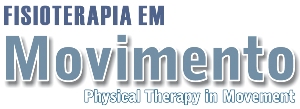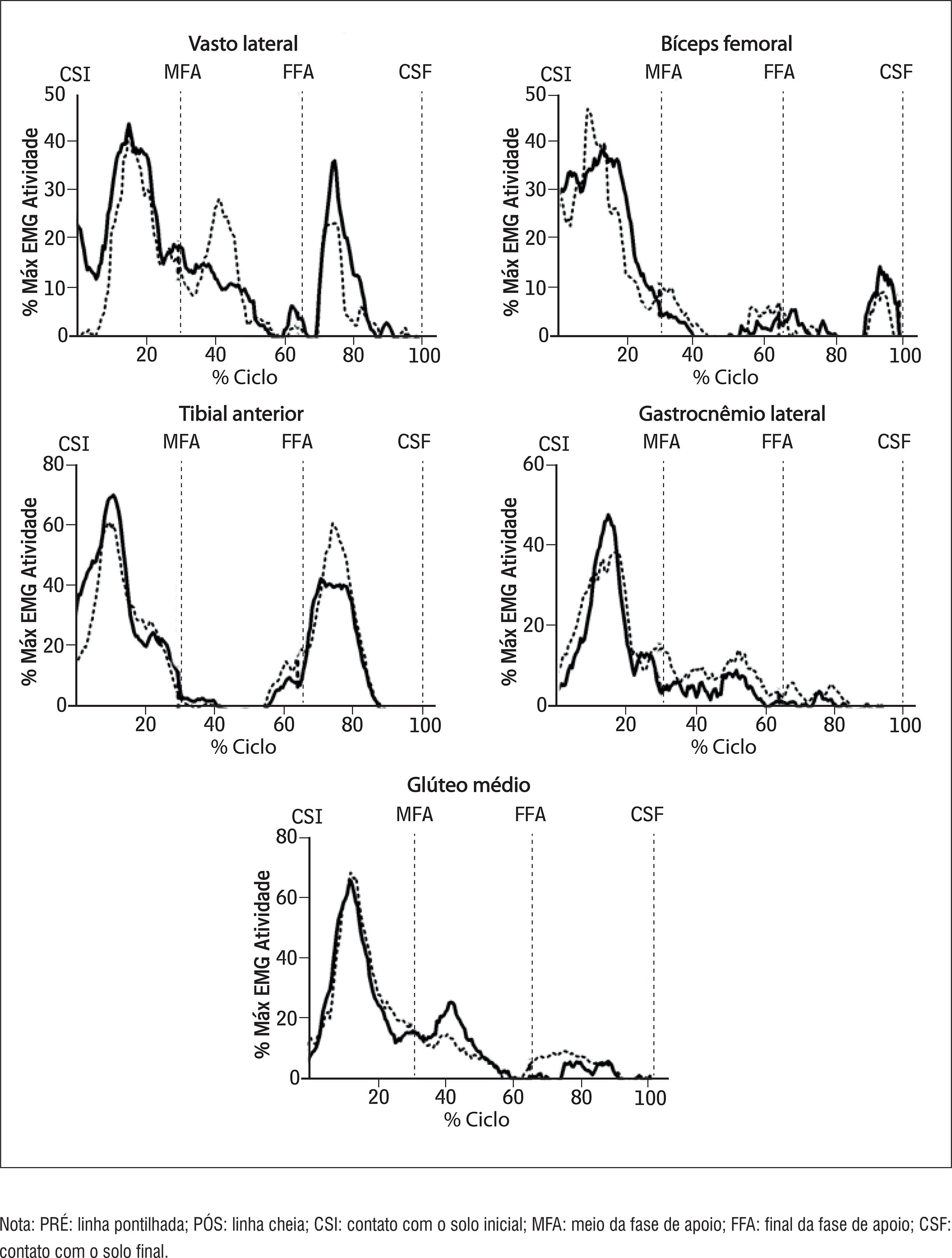Introduction
The aging cause muscular modifications that have a negative influence on functional capacities of elderly on locomotion, in special during inclined surface transpose. Those changes generate decrease on gait performance, reducing the mobility and increasing the risk on execution of the task. The stretching exercises can reduce the influence of these degenerations, preserving the muscular capacities and the mobility.
Objective
The aim of this study was evaluate the influence of acute effect of one session of stretching exercise on elderly gait during locomotion on sloped surface.
Materials and methods
Twelve elderly women, healthy and independent, were walking up and down on a ramp with 10% of inclination. The kinematics (2D) and electromyography analysis was accomplished during one single experimental session, immediately before (PRE) and after (POS) a static stretching exercise on hip flexor muscles.
Results
The stretching exercise was generate increases on range of motion (PRÉ 52.3 ± 18.30; PÓS 63.6 ± 16.90) and velocity (PRE 195.8 ± 31.20/s; POS 241.8 ± 29.80/s) of hip, as a reduction on time of activation of anterior tibialis (PRE TAFIN1 29.7 ± 6.7%; TAFIN2 100.0 ± 0.0%; POS TAFIN1 23.3 ± 7.4%; TAFIN2 87.7 ± 3.4%) and biceps femoris (PRE 45.0 ± 5.4%; POS 36,1±10,4%) on walking up. On walking down occur increases on gait velocity (PRE 0.95 ± 0.18 m.s-1; POS 1.01 ± 0.22 m.s-1) and step length (PRE 1.02 ± 0.15 m; POS 1.08 ± 0.18 m).
Conclusion
The exercises were able to alter significantly the evaluates parameters, allowing a fast gait with reductions on muscle activation levels. Longitudinal studies are necessary to confirm chronically the temporary effects found on this study.
Gait; Stretching; Elderly; Electromyography



